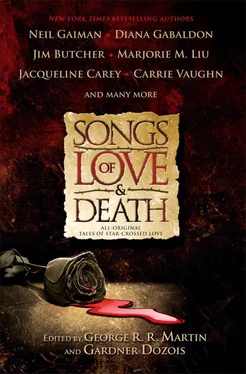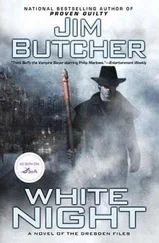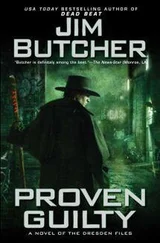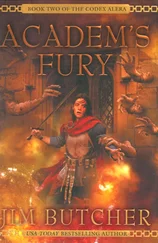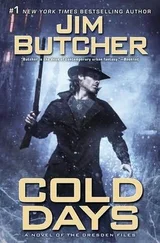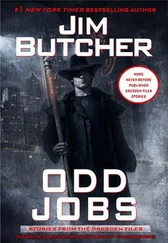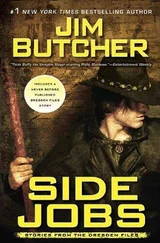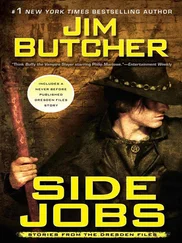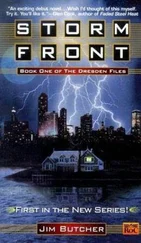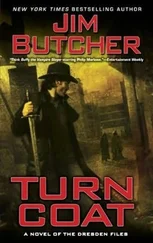She stayed hidden behind her flour-sacking fortress, while renewed offers of tea were made—and to her vague surprise, accepted. She’d thought Captain Randall would seize the chance of her retreat to make his own. But he stayed, chatting calmly with her mother, talking slowly to Roger while her mother fetched the tea, ignoring her embarrassing performance entirely, keeping up a quiet, companionable presence in the shabby room.
The rattle and bustle of the tea tray’s arrival gave her the opportunity to drop her cloth facade, and she meekly accepted a slice of toast spread with a thin scrape of margarine and a delectable spoonful of the strawberry jam.
“There, now,” her mother said, looking on with approval. “You’ll not have eaten anything since breakfast, I daresay. Enough to give anyone the wambles.”
Marjorie shot her mother a look, but in fact it was true; she hadn’t had any luncheon because Maisie was off with “female trouble”—a condition that afflicted her roughly every other week—and she’d had to mind the shop all day.
Conversation flowed comfortably around her, a soothing stream past an immoveable rock. Even Roger relaxed with the introduction of jam. He’d never tasted any before, and sniffed it curiously, took a cautious lick—and then took an enormous bite that left a red smear on his nose, his moss-green eyes round with wonder and delight. The little box, now open, sat on the pie-crust table, but no one spoke of it or looked in that direction.
After a decent interval, Captain Randall got up to go, giving Roger a shiny sixpence in parting. Feeling it the least she could do, Marjorie got up to see him out. Her stockings spiraled down her legs, and she kicked them off with contempt, walking bare-legged to the door. She heard her mother sigh behind her.
“Thank you,” she said, opening the door for him. “I… appreciated—”
To her surprise, he stopped her, putting a hand on her arm.
“I’ve no particular right to say this to you—but I will,” he said, low-voiced. “You’re right; they’re not all brave. Most of them—of us—we’re just… there, and we do our best. Most of the time,” he added, and the corner of his mouth lifted slightly, though she couldn’t tell whether it was in humor or bitterness.
“But your husband—” He closed his eyes for a moment and said, “‘ The bravest are surely those who have the clearest vision of what is before them, glory and danger alike, and yet notwithstanding, go out to meet it. ’ He did that, every day, for a long time.”
“You sent him, though,” she said, her voice as low as his. “You did.”
His smile was bleak.
“I’ve done such things every day… for a long time.”
The door closed quietly behind him, and she stood there swaying, eyes closed, feeling the draft come under it, chilling her bare feet. It was well into the autumn now, and the dark was smudging the windows, though it was just past teatime.
I’ve done what I do every day for a long time, too , she thought. But they don’t call it brave when you don’t have a choice.
Her mother was moving through the flat, muttering to herself as she closed the curtains. Or not so much to herself.
“He liked her. Anyone could see that. So kind, coming himself to bring the medal and all. And how does she act? Like a cat that’s had its tail stepped on, all claws and caterwauling, that’s how. How does she ever expect a man to—”
“I don’t want a man,” Marjorie said loudly. Her mother turned round, squat, solid, implacable.
“You need a man, Marjorie. And little Rog needs a father.”
“He has a father,” she said through her teeth. “Captain Randall has a wife. And I don’t need anyone.”
Anyone but Jerry.
Northumbria
HE LICKED HIS lips at the smell. Hot pastry, steaming, juicy meat. There was a row of fat little pasties ranged along the sill, covered with a clean cloth in case of birds, but showing plump and rounded through it, the odd spot of gravy soaking through the napkin.
His mouth watered so fiercely that his salivary glands ached and he had to massage the underside of his jaw to ease the pain.
It was the first house he’d seen in two days. Once he’d got out of the ravine, he’d circled well away from the mile-castle and eventually struck a small cluster of cottages, where the people were no more understandable, but did give him some food. That had lasted him a little while; beyond that, he’d been surviving on what he could glean from hedges and the odd vegetable patch. He’d found another hamlet, but the folk there had driven him away.
Once he’d got enough of a grip of himself to think clearly, it became obvious that he needed to go back to the standing stones. Whatever had happened to him had happened there, and if he really was somewhere in the past—and hard as he’d tried to find some alternative explanation, none was forthcoming—then his only chance of getting back where he belonged seemed to lie there, too.
He’d come well away from the drover’s track, though, seeking food, and as the few people he met didn’t understand him any more than he understood them, he’d had some difficulty in finding his way back to the Wall. He thought he was quite close, now, though—the ragged country was beginning to seem familiar, though perhaps that was only delusion.
Everything else had faded into unimportance, though, when he smelled food.
He circled the house at a cautious distance, checking for dogs. No dog. Aye, fine, then. He chose an approach from the side, out of view of any of the few windows. Darted swiftly from bush to plowshare to midden to house, and plastered himself against the gray stone wall, breathing hard—and breathing in that delicious, savory aroma. Shite, he was drooling. He wiped his sleeve hastily across his mouth, slithered round the corner, and reached out a hand.
As it happened, the farmstead did boast a dog, which had been attending its absent master in the barn. Both these worthies returning unexpectedly at this point, the dog at once spotted what it assumed to be jiggery-pokery taking place, and gave tongue in an altogether proper manner. Alerted in turn to felonious activity on his premises, the householder instantly joined the affray, armed with a wooden spade, with which he batted Jerry over the head.
As he staggered back against the wall of the house, he had just wit enough left to notice that the farmwife—now sticking out of her window and shrieking like the Glasgow Express—had knocked one of the pasties to the ground, where it was being devoured by the dog, who wore an expression of piety and rewarded virtue that Jerry found really offensive.
Then the farmer hit him again, and he stopped being offended.
IT WAS A well-built byre, the stones fitted carefully and mortared. He wore himself out with shouting and kicking at the door until his gammy leg gave way and he collapsed onto the earthen floor.
“Now bloody what?” he muttered. He was damp with sweat from his effort, but it was cold in the byre, with that penetrating damp cold peculiar to the British Isles, that seeps into your bones and makes the joints ache. His knee would give him fits in the morning. The air was cold, but saturated with the scent of manure and chilled urine. “Why would the bloody Jerries want the damn place?” he said, and sitting up, huddled into his shirt. It was going to be a frigging long night.
He got up onto his hands and knees and felt carefully round inside the byre, but there was nothing even faintly edible—only a scurf of moldy hay. Not even the rats would have that; the inside of the place was empty as a drum and silent as a church.
What had happened to the cows? he wondered. Dead of a plague, eaten, sold? Or maybe just not yet back from the summer pastures—though it was late in the year for that, surely.
Читать дальше
